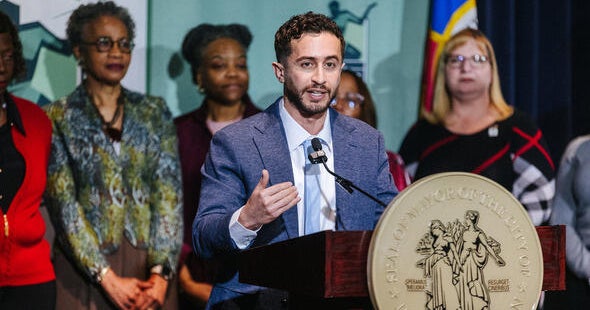Illinois Panel Oks Medical Marijuana For Pain Conditions
COUNTRYSIDE, Ill. (AP) -- An advisory board voted Wednesday to add chronic pain syndrome and three other pain conditions to the list of illnesses that can be treated by marijuana in Illinois.
The state's Medical Cannabis Advisory Board had expressed frustration last month when Gov. Bruce Rauner's administration rejected its first 11 suggestions for expanding the list of medical conditions.
Board chair Dr. Leslie Mendoza Temple said Wednesday that she hopes the Rauner administration will have a different response to the latest round of suggestions after dispensaries start selling the drug, which will be later this month or in early November.
Until the budget impasse in Springfield is resolved, board member Dr. Eric Christoff said, "we're in a holding pattern, and we will carry on with our work." But he believes the Rauner administration and lawmakers will see when sales begin that marijuana is a revenue stream. The Illinois law established a 7 percent tax on marijuana sales.
"It's a revenue stream that's not a broad-based tax," Christoff said before the meeting in suburban Chicago.
Other conditions up for consideration Wednesday were autism, irritable bowel syndrome, osteoarthritis and post-traumatic stress disorder.
The Illinois law already lists 39 conditions and diseases that can qualify a patient to use medical marijuana with a doctor's signature, including cancer, glaucoma, HIV, hepatitis C and multiple sclerosis.
Chronic pain is an approved use in 18 of the 23 states that allow medical marijuana, but not in Illinois. A recent review of 79 studies involving more than 6,000 patients found moderate-quality evidence to support the use of medical marijuana for treating it.
The other types of pain approved Wednesday include chronic pain due to trauma, chronic post-operative pain and intractable pain.
Under the Illinois medical marijuana law, the recommendations next need approval by Illinois Department of Public Health Director Nirav Shah, a Rauner appointee.
"I think we have to put our politics and social agendas aside and boil it down to what matters most, which is easing human suffering," Temple said in making a plea to the Rauner administration for consideration of the recommendations. "We bring a high level of education to this table. We ask that our recommendations be taken seriously as the pilot (program) moves very soon into its implementation phase."
(TM and © Copyright 2015 The Associated Press. All Rights Reserved. This material may not be published, broadcast, rewritten or redistributed.)







